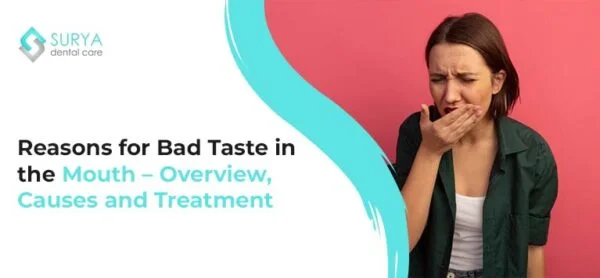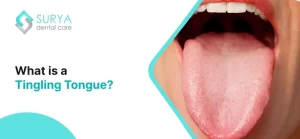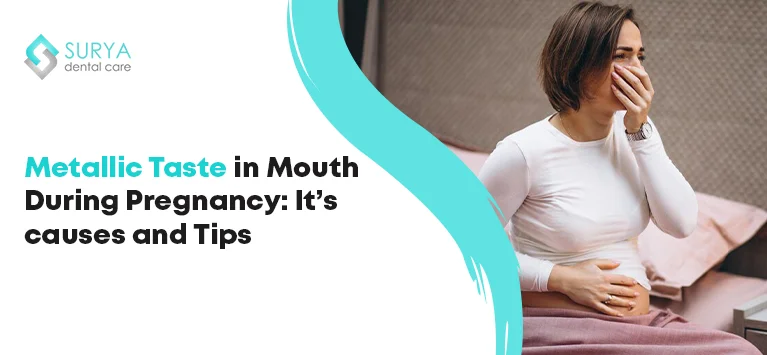Have you ever experienced a bad taste in your mouth that won’t go away? If so, you are not alone. Many people have this problem from time to time, and it can be very annoying and unpleasant. A bad taste in your mouth can affect your appetite, your mood, and your oral health. But what causes it and how can you get rid of it? In this blog post, we will explore some of the possible causes of bad taste in the mouth and offer some tips on how to prevent and treat it. Read on to find out more.
What is a bad taste in the mouth?
A bad taste in the mouth is a subjective sensation that can vary from person to person. Some people may describe it as metallic, bitter, sour, salty, or sickly sweet. Others may have a diminished sense of taste or a cottony feeling in their mouth. A bad taste in the mouth can be temporary or persistent, depending on the underlying cause.
What are the oral causes of bad taste in the mouth?
One of the most common reasons for a bad taste in your mouth has to do with your oral hygiene and dental health. If you don’t brush and floss your teeth regularly, you may develop plaque, which is a sticky film of bacteria that coats your teeth and gums. Plaque is like a sticky film on your teeth that can make your gums red and swollen (gingivitis) and create holes in your teeth (cavities). Both of these conditions can cause a bad taste in your mouth, as well as other symptoms such as bad breath, bleeding gums, sensitive teeth, and toothache.
Other dental problems that can cause a bad taste in your mouth include infections, abscesses, and wisdom teeth coming in. These can cause pain, swelling, and pus in your mouth, which can affect your taste. You may also have a dry mouth, which is a lack of saliva production. Saliva helps to wash away food particles and bacteria from your mouth, and without it, you may have a bad taste and bad breath.
The best way to prevent and treat these oral causes of bad taste in your mouth is to practice good oral hygiene. This means brushing your teeth twice a day, flossing once a day, and using a mouthwash or rinse as recommended by your dentist. You should also visit your dentist regularly for check-ups and cleanings, and seek treatment for any dental problems as soon as possible.
What are the non-oral causes of bad taste in the mouth?
Sometimes, a bad taste in your mouth may not be related to your oral health, but to other factors such as infections, medications, hormonal changes, or neurological conditions. Some of these include:
- Infections: Infections in your respiratory system, such as tonsillitis, sinusitis, or ear infections, can cause a metallic or foul taste in your mouth. This is because these infections can affect your sense of smell, which is closely linked to your sense of taste. You may also have other symptoms such as congestion, sore throat, cough, fever, or earache.
- Medications: Some medications can alter your taste buds or cause dry mouth, which can lead to a bad taste in your mouth. These include antibiotics, antihistamines, antidepressants, blood pressure drugs, and chemotherapy drugs. If you suspect that your medication is causing a bad taste in your mouth, talk to your doctor about possible alternatives or ways to manage it.
- Hormonal changes: Hormonal fluctuations, such as those that occur during pregnancy, menopause, or thyroid disorders, can affect your taste buds and cause a bad taste in your mouth. You may also experience changes in your appetite, mood, or weight.
- Neurological conditions: Some neurological conditions, such as stroke, brain tumor, Alzheimer’s disease, or Parkinson’s disease, can damage the nerves that control your taste and smell, resulting in a bad taste in your mouth. You may also have other symptoms such as memory loss, confusion, tremors, or speech problems.
The treatment for these non-oral causes of bad taste in the mouth depends on the underlying condition and its severity. You may need to take antibiotics, antivirals, or antifungals for infections, adjust your medication dosage or type for side effects, or undergo surgery, radiation, or medication for neurological conditions. You should consult your doctor for a proper diagnosis and for a proper treatment plan.
How to get rid of a bad taste in the mouth?
If you have a bad taste in your mouth that is bothering you, there are some things you can do to try to get rid of it or make it less noticeable. Some of these include:
- Drinking plenty of water: Water can help flush out any toxins, bacteria, or food particles from your mouth and keep it hydrated. It can also help to neutralize any acidic or bitter tastes in your mouth.
- Eating citrus fruits or drinking lemon water: Citrus fruits, such as oranges, lemons, or grapefruits, can stimulate your saliva production and help to cleanse your palate. They can also add a fresh and tangy flavor to your mouth.
- Chewing sugar-free gum or mints: Chewing gum or mints can help to mask any bad tastes in your mouth and freshen your breath. They can also increase your saliva flow and remove any debris from your teeth and gums.
- Brushing your tongue: Your tongue can harbor bacteria and food particles that can cause a bad taste in your mouth. Brushing your tongue gently with a toothbrush or a tongue scraper can help to remove them and improve your oral hygiene.
- Using baking soda or salt water: Baking soda or salt water can help to balance the pH level in your mouth and reduce any inflammation or infection. You can make a simple rinse by mixing a teaspoon of baking soda or salt with a glass of warm water and swishing it around your mouth for a few seconds.
- Avoiding foods and drinks that trigger a bad taste: Some foods and drinks can worsen a bad taste in your mouth or cause it in the first place. These include spicy, sour, or bitter foods, alcohol, coffee, tobacco, and garlic. Try to limit or avoid these items until your taste improves.
Take away:
A bad taste in your mouth can be a nuisance, but it is usually not a serious problem. It can be caused by various oral and non-oral factors, and it can be prevented and treated with proper oral hygiene and medical care. If you have a persistent or severe bad taste in your mouth that interferes with your quality of life, you should see your doctor or dentist for a diagnosis and treatment. They can help you to restore your taste and your smile.








